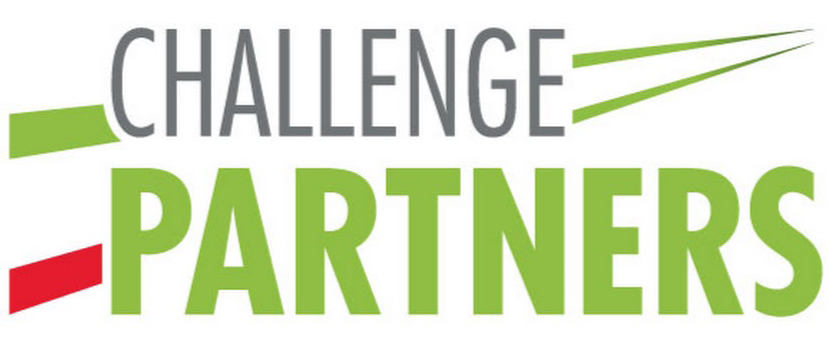Social Sciences
Why study Social Sciences?
‘Sapientia Ianua Vitae’ (Wisdom is the Gateway to Life)
The vision of our team is to provide academic rigour and instil a lifelong love of learning and curiosity, aspiration and engagement in the world around them. We will provide constant cultural capital through Citizenship, Religious Studies, Politics, PSHRE and Philosophy and students will leave us as active and conscientious citizens, ready for all challenges ahead. Wisdom, really is, the gateway to life.
We will do this by developing the four key skills of a Barnhill Social Scientist:
- Higher order thinking
- Empathy
- Consideration of other points of view
- Rational and critical thinking.
Our pedagogical approach to achieve the four key skills is threefold:
- Concept Cracking (Trevor Cooling) – making judgements about the competing truth claims in world religions, from Year 7’s Who Am I? To Year 13’s Critique of Religious Belief.
- Human Development (Michael Grimmett) - searching for meaning and reflecting on ‘what does this mean for my life?’ from Year 8’s Morality to Year 13’s How Should We Live (NT)
- Critical Realism (Andy Wright) - students discovering truth claims themselves and thinking critically about these, from Year 9’s Philosophy and Me to Year 12’s Arguments for the Existence of God.
Social Sciences will teach students to think, listen, speak thoughtfully, and write clearly – all skills that are important in other subjects, and beyond school.
Programme of Study
KS3
Social Sciences encompasses Citizenship, PSHRE and Religious Studies. The blended model means all 3 of these subjects will be taught as 1, with clear signposts to each constituent part.
Themes
Students will show progression through the same themes (with different sub-topics) every year. This way we can ensure maximum blend of Citizenship, PSHRE and Religious Studies. In Year 7 the themes will be looked at in a local context. In Year 8 the themes will be looked at in a national context. In year 9 the themes will be looked at in a global context.
|
Term |
Theme |
|
A1 |
Identity |
|
A2 |
Relationships |
|
Sp1 |
Social Justice |
|
Sp2 |
Conflict |
|
Su1 |
British Values/Politics |
|
Su2 |
World Religions |
Year 7
|
Term |
Topic |
|
A1 |
Who am I? |
|
A2 |
Is there such a thing as democratic society? |
|
Sp1 |
What are my rights and responsibilities? |
|
Sp2 |
Does evil prove that God doesn’t exist? |
|
Su1 |
What makes a good citizen? |
|
Su2 |
Why don’t all Muslims think the same way? |
Year 8
|
Term |
Topic |
|
A1 |
Where do I stand morally and ethically? |
|
A2 |
What is my wider community? |
|
Sp1 |
How is crime an issue in the UK? |
|
Sp2 |
How do I know what I know? |
|
Su1 |
What problems is the UK facing today? |
|
Su2 |
Why don’t all Christians think the same way? |
Year 9
|
Term |
Topic |
|
A1 |
Philosophy and Me |
|
A2 |
Medical Ethics |
|
Sp1 |
Global Issues |
|
Sp2 |
Debating |
|
Su1 |
What problems is the world facing today? |
|
Su2 |
What can we learn about ourselves from lesser-known world religions? |
Religious Studies
Year 10 Core
|
Term |
Topic |
|
A1 |
Christian Extremism: The Westboro Baptist Church |
|
A2 |
Jewish Extremism: Ultra-Zionism |
|
Sp1 |
Islamic Extremism: ISIS |
|
Sp2 |
British Right-Wing Extremism: English Defence League |
|
Su1 |
Anti-White Extremism: The Black Nationalists |
|
Su2 |
Anti-Black Extremism: The KKK |
Year 10 GCSE RS - Exam Board: Edexcel
Paper 1: Christianity: Ethics (50%, 1h45 exam)
- Christian Beliefs
- Marriage and the Family
- Living the Christian Life
- Matters of Life and Death
Year 11 GCSE RS - Exam Board: Edexcel
Paper 2: Islam: Peace and Conflict (50%, 1h45 exam)
- Muslim Beliefs
- Crime and Punishment
- Living the Muslim Life
- Peace and Conflict
A-Level Religious Studies - Exam Board: Edexcel
Paper 1: Philosophy of Religion (33%, 2 hours)
- Arguments for the Existence of God
- Religious Experience
- The Problem of Evil and Suffering
- Religious Language
- Critiques of Religious Belief
- Life After Death/Religion and Science
Paper 2: Religion and Ethics (33% 2 hours)
- Issues and Debates in Religion (Equality and the Environment)
- A Study of 5 Ethical Theories
- Issues of Importance (Sexual Ethics, War and Peace)
- Ethical Language
- Religion and Morality
- Medical Ethics
Paper 3: New Testament Studies (33% 2 hours)
- Social and Historical Context of the 1st Century
- Interpretation of the Person of Jesus
- Interpreting the Text
- Ways of Interpreting Scripture
- Jesus’ Death
- Scientific and Historical Challenges
Citizenship
Exam Board: Edexcel
- Paper 1: Themes A-C (50%, 1h45)
- Paper 2: Themes D and E (50%, 1h45)
Theme A: Living Together in the UK
- Migration
- Human Rights
- Political Rights
Theme B: Democracy at Work in the UK
- Political Parties
- Democracy
- Voting Systems
- Westminster and Devolved Parliaments
Theme C: Law and Justice
- Sources of Law
- Court Systems
- Crime
- Punishment
Theme D: Power and Influence
- Participation
- The Media
- The UK and Europe
- International Law and Conflict
Theme E: Citizenship Action
Students will plan, research and carry out a citizenship action about an issue arising from your course.
Politics
Exam board: Edexcel
- Paper 1: UK Politics (33%, 2 hours)
- Paper 2: UK Government (33%, 2 hours)
- Paper 3: Global Politics
In Year 12 students look at UK Politics and UK Government:
UK Politics:
- Democracy and Participation
- Political Parties
- Electoral Systems
- Voting Behaviour and the Media
UK Government:
- The Constitution
- Parliament
- PM and the Executive
- Relationships between the branches
Core Political Ideas:
- Conservatism
- Socialism
- Liberalism
Non-core Political Ideas:
-
Feminism
In Year 13 we will be looking at Global Politics
- Sovereignty and Globalisation
- Global governance
- Human Rights and the Environment
- Power
- Regionalism
- The EU
Useful Resources
RS GCSE
RS A-Level
https://www.amazon.co.uk/Edexcel-Religious-Studies-level-Student/dp/1510433392
Citizenship GCSE
https://www.amazon.co.uk/Pearson-Edexcel-Citizenship-Revision-Workbook/dp/1292268166
Politics A-Level
https://www.amazon.co.uk/REVISE-Edexcel-Politics-Revision-Workbook/dp/1292221569
https://www.amazon.co.uk/Pearson-Edexcel-Level-Politics-2nd/dp/1398369152
Homework
At KS3 students will be set short research homework related to the lessons prior or next.
At KS4 students will be set exam-style questions as homework.
At KS5 students will be set pre-reading or research homework, and occasionally essays.
Enrichment
The Social Sciences Cultural Capital Fund
If students want to do something that will enrich their lives, and it links to the Social Sciences, we will pay for it. Similarly, if a student would like some literature to broaden their horizons or contribute to their studies, we will purchase it for them.
Enrichment opportunities so far this year:
- British Museum: Feminine Power: the divine to the demonic
- Social Sciences Student Library:
- Zealot: The Life and Times of Jesus of Nazareth, Reza Aslan
- The Secret Barrister, Anon
- In Your Defence: True Stories of Life and Law, Sarah Langford
- Is Eating People Wrong? Allan Hutchinson
- Lessons in Chemistry, Bonnie Garmus
- The Puzzle of Christianity, Peter Vardy
Trips and Community Action
- Year 10 Citizenship and Year 12 Politics trip to Parliament
- Year 11 Citizenship GCSE Citizen Action Project
- Year 10 RS trip to Walsingham
- External Speakers






